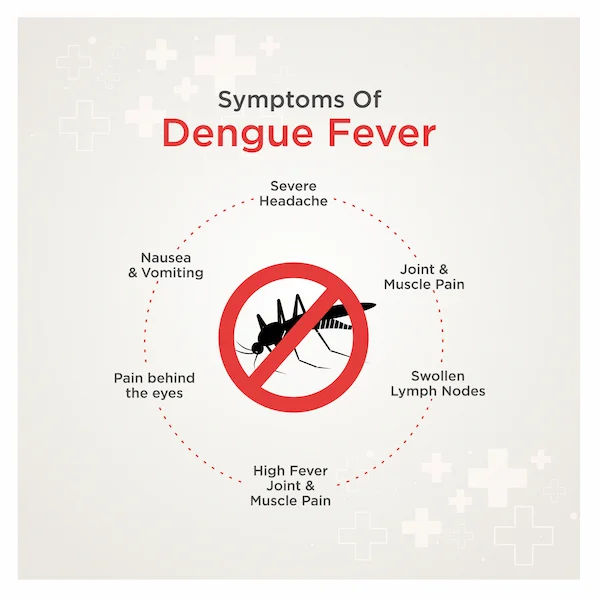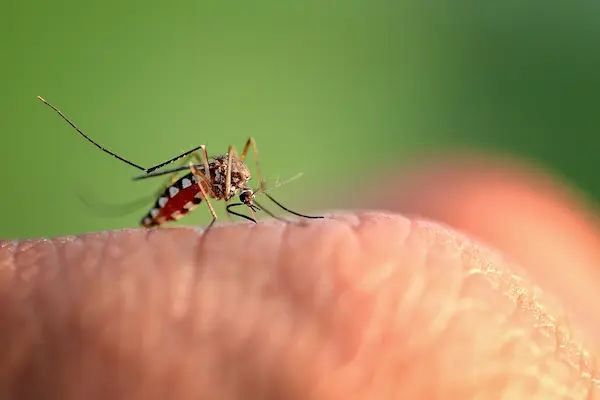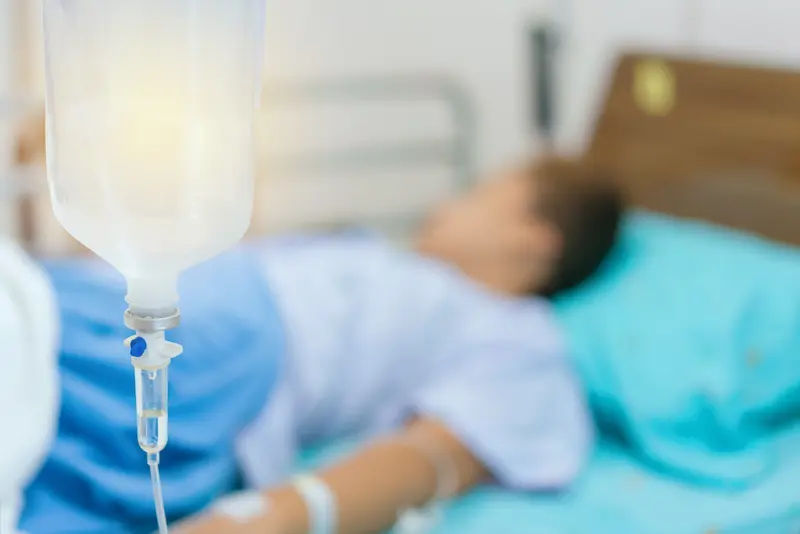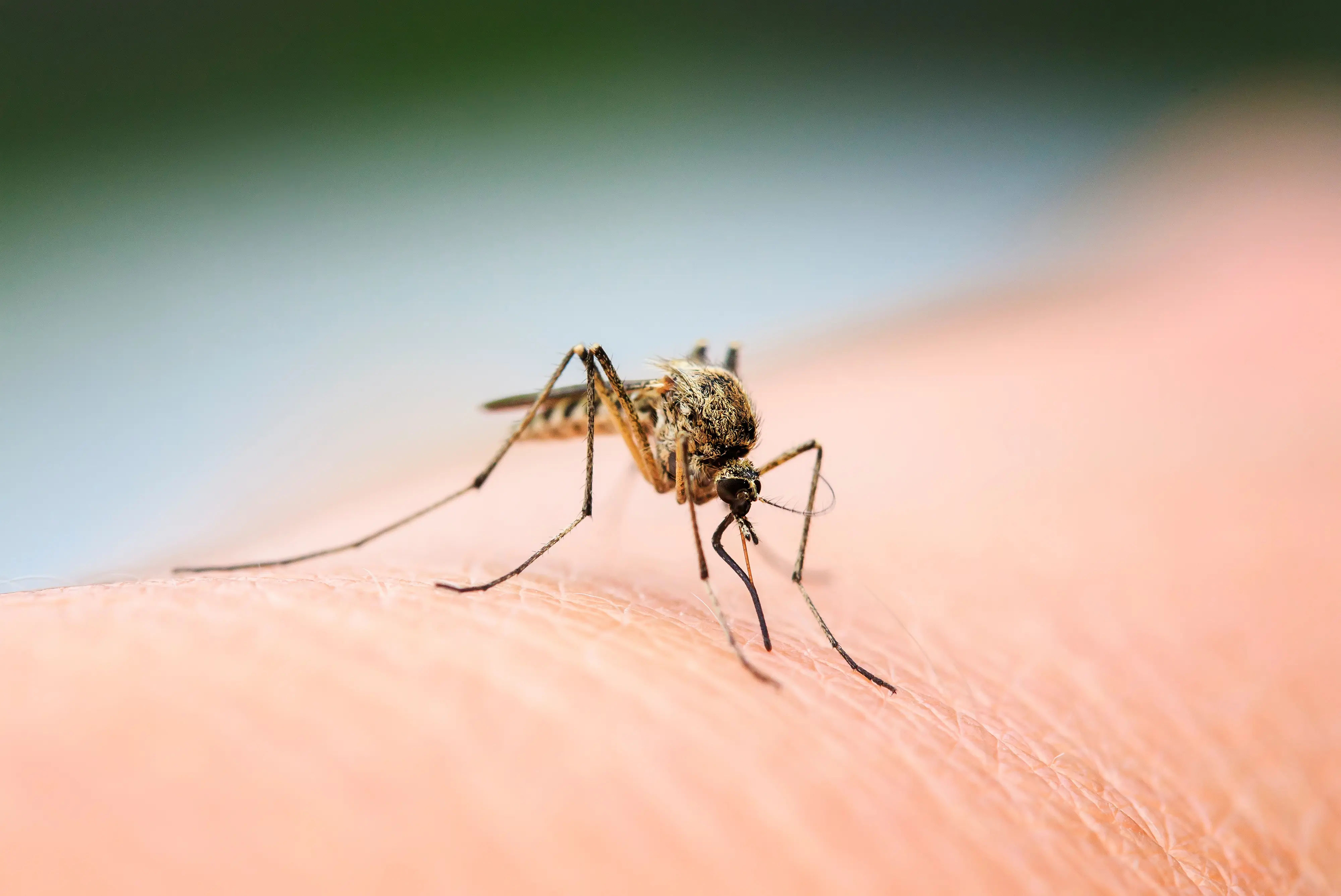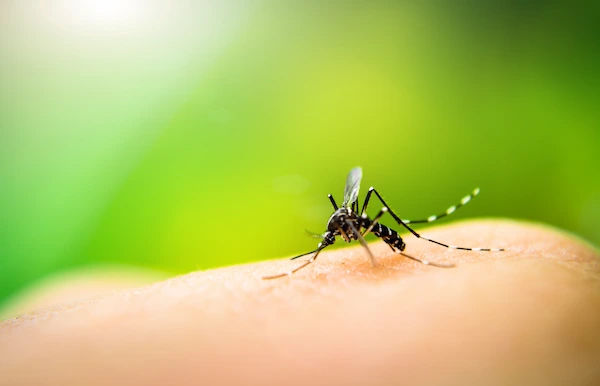Dengue Fever: Your Guide to Risk Factors, Variants, and New Vaccines
Learn about dengue fever risk factors, variants, and the latest vaccines. Discover prevention strategies, symptoms, and how to protect yourself and your community.

Written by Dr. Vasanthasree Nair
Reviewed by Dr. Dhankecha Mayank Dineshbhai MBBS
Last updated on 13th Jan, 2026
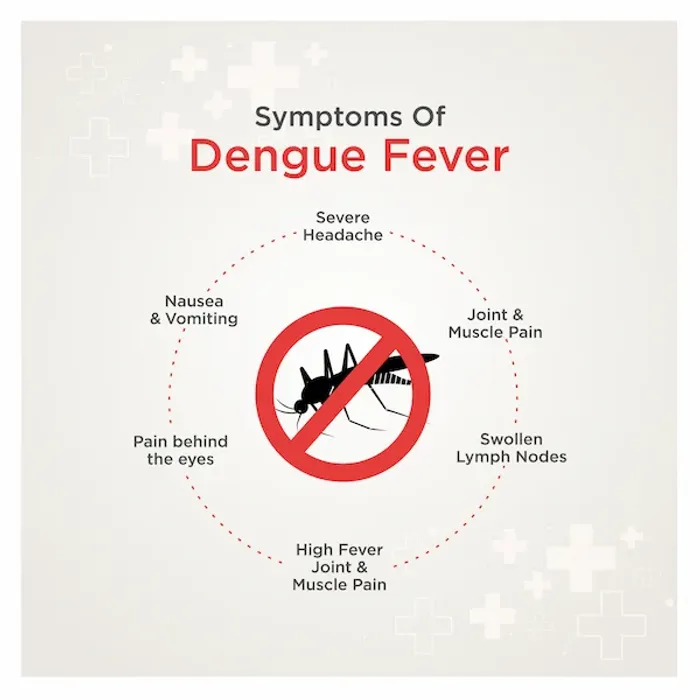
Introduction
Dengue fever is a rapidly spreading mosquito-borne viral infection that poses a significant health threat across the globe, especially in tropical and subtropical climates. With millions of cases reported annually, understanding your personal dengue risk factors is the first critical step toward protection. This virus isn't monolithic; it circulates as multiple variants (serotypes), and a second infection with a different type can often be more severe than the first. But there is hope on the horizon. Recent medical advancements have introduced effective vaccines, marking a turning point in the fight against this disease. This comprehensive guide will walk you through everything you need to know—from identifying your level of risk and recognising symptoms to exploring the latest preventive strategies, including the groundbreaking role of vaccination. Our goal is to empower you with knowledge to safeguard your health and that of your community.
What Exactly is Dengue Fever?
Dengue fever is an illness caused by the dengue virus (DENV). It's transmitted to humans through the bite of an infected female mosquito, primarily Aedes aegypti. This mosquito is a daytime feeder, with peak biting periods in the early morning and just before dusk. The disease's nickname, "breakbone fever," hints at the severe muscle and joint pains it can cause.
The Four Serotypes: DENV-1, DENV-2, DENV-3, DENV-4
There are four distinct but closely related serotypes of the dengue virus: DENV-1, DENV-2, DENV-3, and DENV-4. Recovery from an infection by one serotype provides lifelong immunity against that specific variant. However, immunity to the other three is only partial and temporary. Subsequent infections by other serotypes increase the risk of developing severe dengue. This is a crucial concept in understanding dengue risk factors.
How Dengue is Transmitted: The Role of the Aedes Mosquito
The transmission cycle begins when a mosquito bites a person infected with the dengue virus. The virus then replicates in the mosquito for 8-12 days before it can be transmitted to another human through a bite. These mosquitoes thrive in and near human dwellings, preferring to breed in man-made containers like discarded tires, flower pots, and water storage tanks that hold stagnant water.
Consult Top Specialists for Personalised Tips
Primary Dengue Risk Factors: Are You in Danger?
Your risk of contracting dengue isn't random; it's influenced by a combination of where you are, who you are, and your health history.
Geographic and Environmental Risks
- Living in or Traveling to Tropical Regions: The most significant dengue risk factor is geographical location. Dengue is endemic in over 100 countries in Southeast Asia, the Pacific Islands, the Caribbean, Latin America, and Africa. Travelers to these areas are at high risk.
- Urbanisation and Stagnant Water Sources: The Aedes mosquito thrives in urban and semi-urban environments. Cluttered spaces with poor sanitation that collect rainwater are perfect breeding grounds. Communities without reliable piped water often store water in containers, which, if uncovered, become ideal mosquito nurseries.
Biological and Health-Related Risks
- Age and Vulnerability: Higher Risk in Children: While anyone can get dengue, children and young adults often have less developed immunity and tend to experience more severe complications.
- The Paradox of Second Infection: Antibody-Dependent Enhancement (ADE): This is the most critical dengue risk factor. ADE occurs when antibodies from a previous infection with one serotype fail to neutralise a different serotype in a subsequent infection and instead help the virus enter cells, leading to a higher viral load and more severe disease. This is why a second dengue infection can be far more dangerous.
- Underlying Chronic Health Conditions: Individuals with conditions like asthma, diabetes, heart disease, or those who are immunocompromised may be at a higher risk for severe dengue.
The Dengue Variant Landscape: Why Some Outbreaks Are Worse
Not all dengue outbreaks are equal. Their severity is often dictated by the circulating variant or serotype.
Dominant Serotypes and Strain Virulence
Some serotypes, particularly DENV-2 and DENV-3, have been associated with more virulent strains that can cause larger and more severe outbreaks. When a new serotype is introduced into a region that has previously only had another, it can lead to a surge in cases due to the lack of population immunity.
The Challenge of Co-circulation and Hyperendemicity
In many endemic countries, multiple serotypes co-circulate simultaneously, a situation known as hyperendemicity. This dramatically increases the chance of an individual being exposed to a second, different serotype, thereby elevating the community-wide risk of severe dengue through the mechanism of ADE.
The Dawn of a New Era: Dengue Vaccines
For decades, the fight against dengue relied solely on mosquito control. Today, vaccines represent a powerful new tool.
Qdenga® (TAK-003): A Comprehensive Overview
Qdenga, developed by Takeda Pharmaceuticals, is a live-attenuated tetravalent vaccine approved in several countries, including those in the European Union and Indonesia. It is designed to protect against all four dengue serotypes.
How It Works and Who It's For:
The vaccine is approved for individuals from 4 years of age and older. It is administered in two doses, three months apart. It's particularly valuable for those living in endemic areas, as it helps build immunity before natural exposure occurs.
Efficacy and Important Considerations:
Clinical trials have shown Qdenga to be effective against symptomatic dengue and, crucially, highly effective at preventing hospitalisation. It's important to note that, like any medical intervention, it may have side effects, and its efficacy can vary by serotype and prior dengue exposure status. Consulting a doctor online with Apollo24|7 can help you understand if this vaccine is appropriate for you or your family based on your medical history and local dengue prevalence.
Other Vaccines and Developments in the Pipeline
Dengvaxia® (CYD-TDV) was the first dengue vaccine licensed but is now recommended only for individuals with a confirmed previous dengue infection due to the risk of ADE in seronegative individuals. Other candidates are in various stages of clinical trials, promising a future with more options for dengue prevention.
Conclusion: Empowering Yourself Against Dengue
Dengue fever is a complex and challenging public health issue, but it is not an invincible foe. By understanding the specific dengue risk factors—from the environmental triggers to the biological paradox of secondary infection—you can take proactive steps to minimise your exposure. Staying informed about the dominant variant in your region adds another layer of preparedness. Most importantly, the advent of effective vaccines has fundamentally changed the landscape, offering a robust shield for individuals and communities. Combating dengue requires a multi-pronged approach: individual vigilance against mosquitoes, community-wide efforts to eliminate breeding grounds, and embracing scientific advancements like vaccination. Stay aware, stay protected, and never hesitate to seek professional medical advice to navigate this disease safely.
Consult Top Specialists
Consult Top Specialists for Personalised Tips
Dr. Indrajit Das
General Physician/ Internal Medicine Specialist
4 Years • "MD (Internal medicine) : Gauhati Medical College and Hospital, Guwahati (2018-2021) MD (Pathology) : Gauhati Medical College and Hospital, Guwahati (2012-2015) MBBS (Bachelor of Medicine, Bachelor of Surgery) : Silchar Medical College, Assam (2003-2008) "
Guwahati
Apollo Excelcare Hospital, Guwahati
Dr Prachi Sankhe
General Physician/ Internal Medicine Specialist
8 Years • MBBS, MD (Internal Medicine)
Mumbai
Apollo Hospitals CBD Belapur, Mumbai

Dr. Rajib Ghose
General Physician/ Internal Medicine Specialist
26 Years • MBBS
Kolkata
B Ghose Foundation Doctor's Chamber, Kolkata
(50+ Patients)

Dr. Rajib Ghose
General Physician/ Internal Medicine Specialist
25 Years • MBBS
East Midnapore
VIVEKANANDA SEBA SADAN, East Midnapore

Dr. Rohit Basu
General Practitioner
8 Years • MBBS, DNB (General surgery)
East Midnapore
VIVEKANANDA SEBA SADAN, East Midnapore
Consult Top Specialists
Dr. Indrajit Das
General Physician/ Internal Medicine Specialist
4 Years • "MD (Internal medicine) : Gauhati Medical College and Hospital, Guwahati (2018-2021) MD (Pathology) : Gauhati Medical College and Hospital, Guwahati (2012-2015) MBBS (Bachelor of Medicine, Bachelor of Surgery) : Silchar Medical College, Assam (2003-2008) "
Guwahati
Apollo Excelcare Hospital, Guwahati
Dr Prachi Sankhe
General Physician/ Internal Medicine Specialist
8 Years • MBBS, MD (Internal Medicine)
Mumbai
Apollo Hospitals CBD Belapur, Mumbai

Dr. Rajib Ghose
General Physician/ Internal Medicine Specialist
26 Years • MBBS
Kolkata
B Ghose Foundation Doctor's Chamber, Kolkata
(50+ Patients)

Dr. Rajib Ghose
General Physician/ Internal Medicine Specialist
25 Years • MBBS
East Midnapore
VIVEKANANDA SEBA SADAN, East Midnapore

Dr. Rohit Basu
General Practitioner
8 Years • MBBS, DNB (General surgery)
East Midnapore
VIVEKANANDA SEBA SADAN, East Midnapore
More articles from Dengue fever
Frequently Asked Questions
Can you get dengue more than once?
Yes, and this is a major concern. There are four dengue serotypes. Infection with one provides lifelong immunity to that specific type but only short-term immunity to the others. A second infection with a different serotype increases the risk of severe dengue.
What is the best treatment for dengue fever?
There is no specific antiviral medication for dengue. Treatment is supportive and includes rest, plenty of fluids to prevent dehydration, and pain relievers like acetaminophen (paracetamol). Avoid NSAIDs like aspirin or ibuprofen, as they can increase the risk of bleeding. If symptoms of severe dengue appear, consult a doctor immediately.
How long does it take to recover from dengue?
Most people recover from classic dengue fever within a week or two. However, fatigue and a general feeling of weakness (post-dengue fatigue syndrome) can sometimes linger for several weeks.
Is the dengue vaccine safe?
Vaccines like Qdenga have undergone rigorous clinical trials and are deemed safe and effective for the approved age groups (4 years and older). As with any vaccine, there can be side effects, which are usually mild and temporary, such as headache, muscle pain, and injection site reactions. It's best to discuss your medical history with a doctor before vaccination.
How can I quickly boost my platelet count during dengue?
There is no proven food or supplement that can rapidly boost platelets. The most important factor is adequate medical supervision and hydration. The platelet count will naturally (rise again) as the infection resolves. Medical intervention like transfusion is only needed in severe cases. Focus on a balanced diet and follow your doctor's advice.
